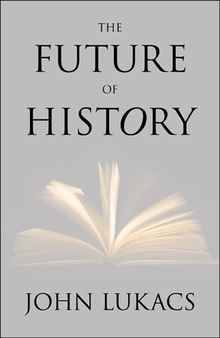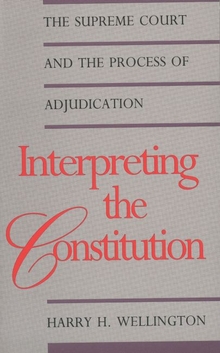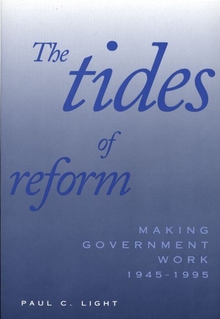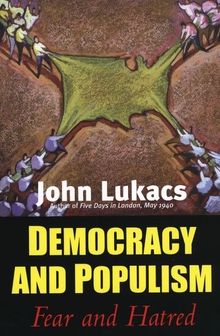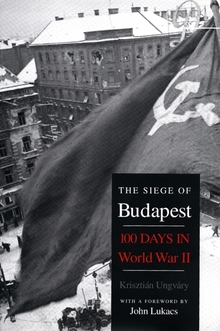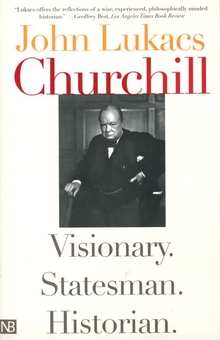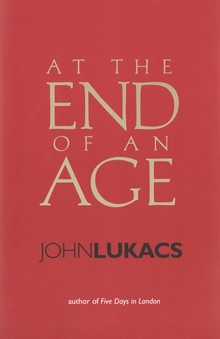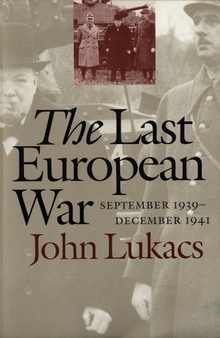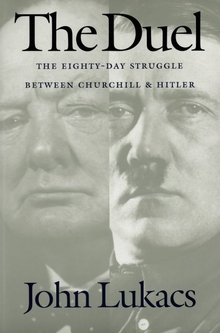The Future of History
WARNING
You are viewing an older version of the Yalebooks website. Please visit out new website with more updated information and a better user experience: https://www.yalebooks.com
John Lukacs
Out of Print
A master historian explores the critical future of history writing and teaching
For more than sixty years, John Lukacs has been writing, teaching, and reading about the past. In this inspired volume, he turns his attention to the future. Throughout The Future of History, Lukacs reflects on his discipline, eloquently arguing that the writing and teaching of history are literary rather than scientific, comprising knowledge that is neither wholly objective nor subjective. History at its best, he contends, is personal and participatory.
Despite a recently unprecedented appetite for history among the general public, as evidenced by history television program ratings, sales of popular history books, and increased participation in local historical societies, Lukacs believes that the historical profession is in a state of disarray. He traces a decline in history teaching throughout higher education, matched by a corresponding reduction in the number of history students. He reviews a series of short-lived fads within the profession that have weakened the fundamentals of the field. In looking for a way forward, Lukacs explores the critical relationships between history and literature, including ways in which novelists have contributed to historical understanding. Through this startling and enlightening work, readers will understand Lukacs's assertion that "everything has its history, including history" and that history itself has a future, since everything we know comes from the past.
"A brilliant and penetrating analysis of the present and future of history by one of our wisest historians and philosophers of history, a work that should be read by everyone interested in history in the twenty-first century."--Stanley G. Payne, author of Franco and Hitler: Spain, Germany, and World War II
“In the course of the last six decades, John Lukacs has published more than thirty learned, witty, controversial tomes and innumerable articles and reviews – nearly all of them contributions to the study of modern European and American history, and many of them laced with striking reflections on the present discontents. In this slim, gracefully written volume, this renowned historian turns from tracing, analyzing, and assessing the significance of developments past to ruminating on the present state of historical scholarship and pondering its prospects. Composed in a conversational style reminding one of what it originally meant to pen an essay, The Future of History will be treasured by readers graced with a speculative cast of mind and apt to take delight in the company of a thoughtful and erudite provocateur.”--Paul A. Rahe, author of Soft Despotism, Democracy’s Drift
"These personal reflections on the nature of history and historical consciousness, the fruit of a long productive career of an historian who never shrank from big subjects and controversial questions, will provoke, stimulate and enlighten readers. Its central thesis, that history is and should remain literature, conveying meaning like great novels more through insight and understanding than by factual narration, is surely worth pondering."--Paul Schroeder, The Transformation of European Politics, 1763-1848
“To listen to [Lukacs] attempting to reconcile conflicting ideas and facts is the pleasure and instructiveness of The Future of History. It teaches us how to respect our disciplines.”—Ron Slate, On the Seawall
“I do not tire of reading Lukacs . . . It’s almost as if he’s sitting by the fire speaking informally to a gathering of confidants on a topic about which his mind has been quite fertile for many decades. While the topics have been addressed in the past, the fertility of his mind keeps them fresh and relevant.”—Stephen Greenleaf, Taking Readings
“The Future of History should be treasured, not only for its depressing observations about the state of history in the US, but also for its persuasive demonstration that, if history is to endure, it must harness the facts and techniques found in literature and provide meaning like the world’s great novels.”—Walter C. Uhler
Publication Date: April 26, 2012

